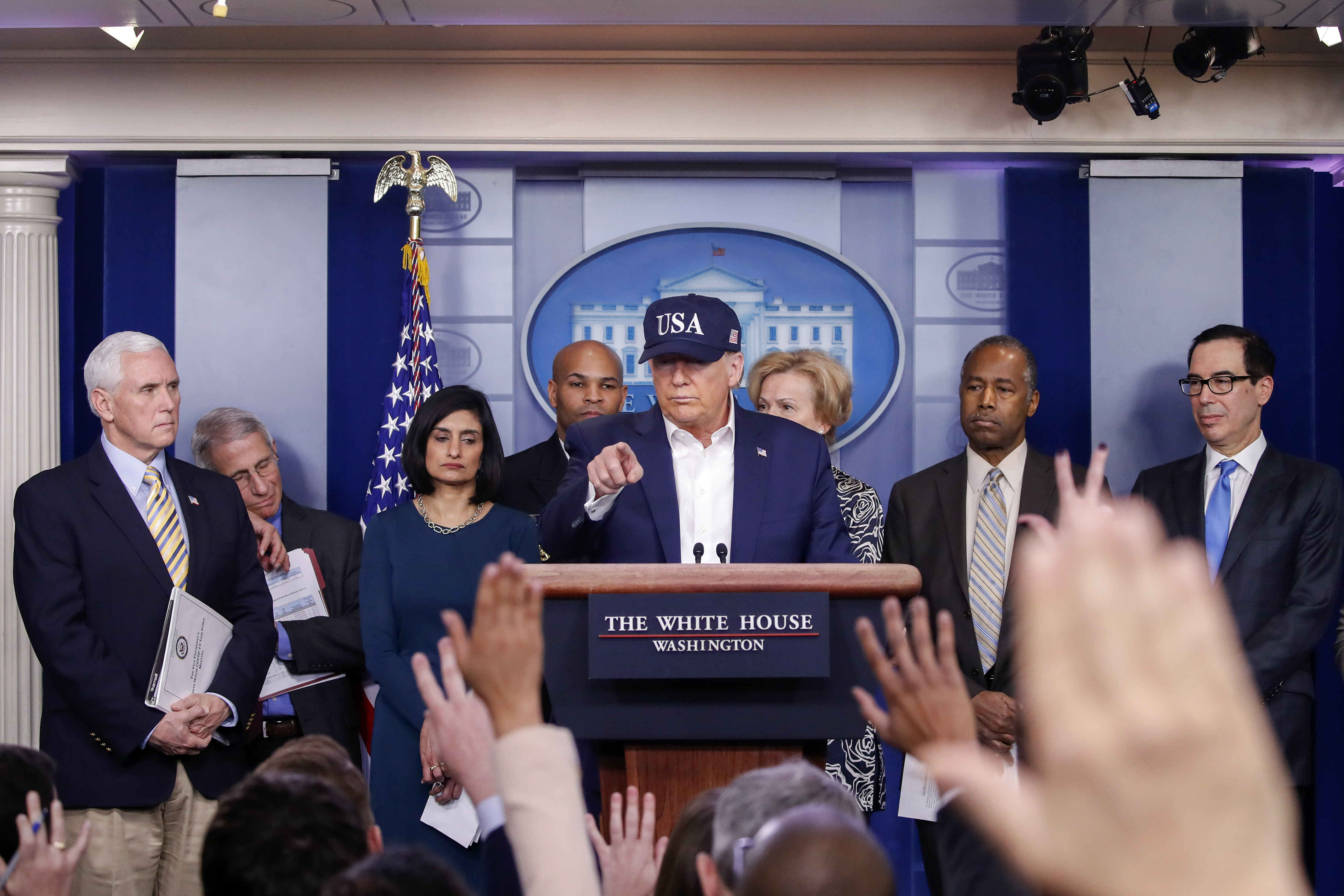President Trump declared a national emergency on Friday over the coronavirus pandemic and announced steps he said would speed the availability of testing, and early on Saturday, the House passed a bill reflecting a deal with his administration to provide billions of dollars to help sick workers and to prop up a slumping economy.
Markets rallied on Trump’s emergency declaration, which he said would free up $50 billion for states and localities to cope with the outbreak — separate from the congressional relief measure — and which would allow the treasury department to delay tax filing deadlines for some individuals and businesses.
During a news conference in the Rose Garden, the President also said he would indefinitely suspend interest collections on federal student loans, although no bills would go down. And he instructed the energy department to buy enough oil to fill the nation’s Strategic Petroleum Reserve “to the top”.
The S&P 500 soared during the remarks and closed the day up by more than 9 per cent.
At the news conference, Trump followed none of the safety protocols recommended to combat the spread of the virus, shaking hands with multiple administration officials and chief executives and sharing a microphone with them.
He said his plan would speed the ability of Americans to be tested for the virus. It includes private partnerships to speed tests to the market and a website designed by Google, where Trump said potential patients could enter their symptoms and be directed to a drive-through testing centre.
The President said the site would be available starting on Sunday, with the goal of allowing all Americans who needed a test to get one “very safely, quickly and conveniently”.
But later, Google appeared to cast doubt on when or even whether that would be possible. A spokeswoman said that the initiative was in its “early stages” and would first be introduced as a prototype in the Bay Area.
The relief deal, whose cost is unclear, would allow for two weeks of paid sick leave and up to three months of family and medical leave for those affected by the crisis.
It provides tax credits to help small- and medium-size businesses finance the new benefit. It does not include the payroll tax suspension that Trump wants. Any such suspension could cost more than $800 billion and would not provide help to workers who lose their jobs or stop drawing salaries in the outbreak.
“We could have passed our bill yesterday,” Speaker Nancy Pelosi said.
“But we thought it would be important to show the American people — to assure the American people — that we are willing and able to work together to get a job done for them.”
The announcements came as the pandemic’s ripple effects further slowed sectors of the American economy and interfered with daily life.
Schools across the country, including in Los Angeles and the entire state of Virginia, shut down. Delta Air Lines announced it would ground 300 aircraft and reduce capacity by 40 per cent, the sharpest cutback in its history.
Grocery store shelves were picked clean, and restaurants and retail stores braced for fall-offs in customer traffic as more Americans began to follow “social distancing” orders to avoid crowds and possible virus transmission.
The House voted overwhelmingly to approve the aid bill, which was unveiled minutes before midnight and passed 363 to 40 at 12.53am on Saturday. Justin Amash of Michigan, the chamber’s lone independent, voted present.
The bill includes enhanced unemployment benefits, free virus testing and additional funds for food assistance and Medicaid.
Senators, who left Washington for the weekend on Thursday, are expected to take up the measure when they return next week. Trump has signed off on it.











